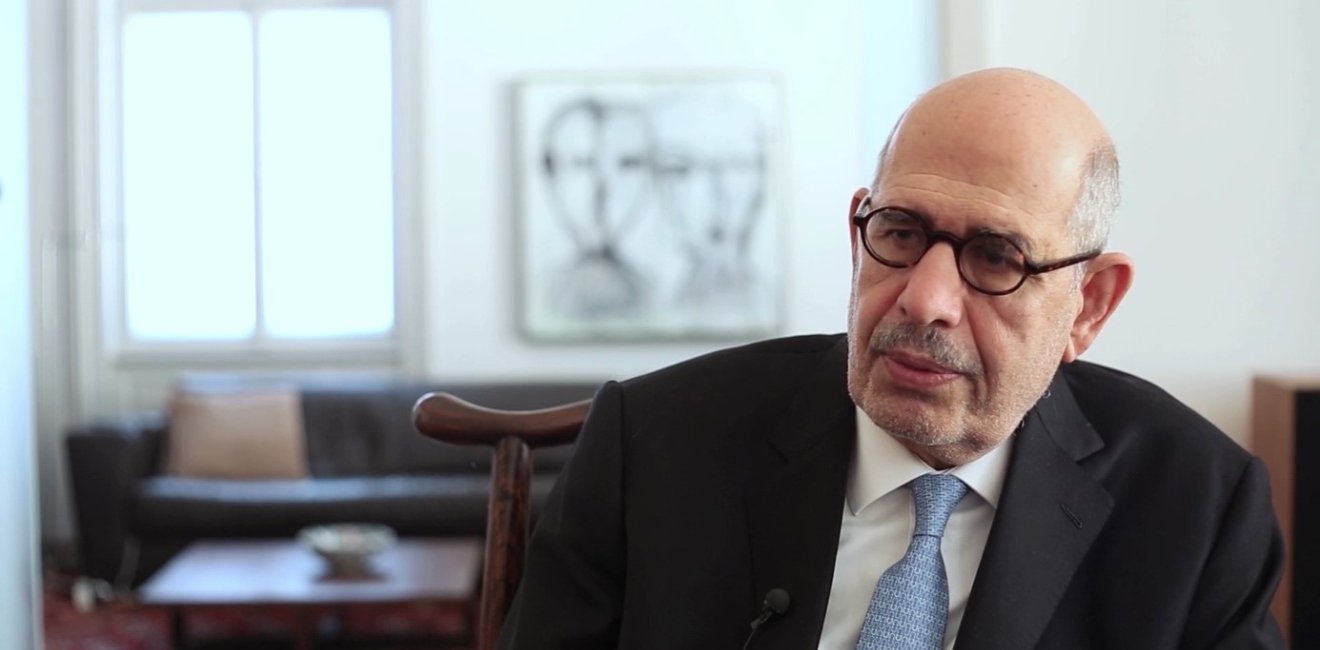Talking History: Ten Lessons for Running an Oral History Project
Wilson Center Global Fellow Elisabeth Roehrlich shares advice for conducting oral history interviews.

A blog of the History and Public Policy Program
Wilson Center Global Fellow Elisabeth Roehrlich shares advice for conducting oral history interviews.

Above: Still from author's interview with former IAEA Director General Mohamed ElBaradei.
Ten lessons for running an oral history project
Diplomatic historians have a love-hate relationship with oral history. Most agree that interviews with former politicians and officials provide important insights, especially when historical records are not (or not yet) available.
But the memories of individuals have limits. Some historians argue that oral history helps access marginalized histories that are not part of the official record, while others warn about overemphasizing the historical relevance of anecdotes.
In 2015, I launched an oral history project of the International Atomic Energy Agency (IAEA). My motivation was twofold: first, I wanted to learn more about the history of this international organization, the archives of which are still to a great extent closed (despite some noticeable efforts to increase transparency). Second, I wanted to help preserve the institutional memory of this important institution. The Carnegie Corporation of New York and the Austrian Central Bank generously funded the project, during which I conducted interviews with former officials, inspectors, and diplomats. My colleague Klaudija Sabo, a historian and filmmaker in charge of filming the interviews, became the project’s creative mind. To date, nineteen interviews can be watched online.
Conducting oral history interviews increased my understanding and knowledge of the IAEA’s history tremendously, and I am glad that I undertook the adventure. There is broad disciplinary variety in oral history, ranging from critical oral history conferences to lifetime interviews. Some interviews are published later, others are used as background research for dissertations. Therefore, the lessons I learned over the course of my project may not be true for all projects, but hopefully they can be helpful for those who consider conducting oral history interviews.
Even if you do not run an oral history project yourself, oral history offers a helpful resource for historical research. There are many great projects out there. Former IAEA official Thomas Shea organized a video oral history project for the Pacific Northwest National Laboratory, which focuses on the foundations of international safeguards. The project’s website offers videos and transcripts, covering the history of nuclear safeguards from the first agreements to the Additional Protocol. The United Nations has run an oral history series on various aspects of the world organization’s history, in cooperation with Yale University. Audiovisual materials, transcripts, and background information are available at the website of the Dag Hammarskjold Library. In the digital age, you can access many fascinating oral history projects from your own desk.


A leader in making key foreign policy records accessible and fostering informed scholarship, analysis, and discussion on international affairs, past and present. Read more


The Cold War International History Project supports the full and prompt release of historical materials by governments on all sides of the Cold War. Read more


The Nuclear Proliferation International History Project is a global network of individuals and institutions engaged in the study of international nuclear history through archival documents, oral history interviews, and other empirical sources. Read more


The North Korea International Documentation Project serves as an informational clearinghouse on North Korea for the scholarly and policymaking communities, disseminating documents on the DPRK from its former communist allies that provide valuable insight into the actions and nature of the North Korean state. Read more



